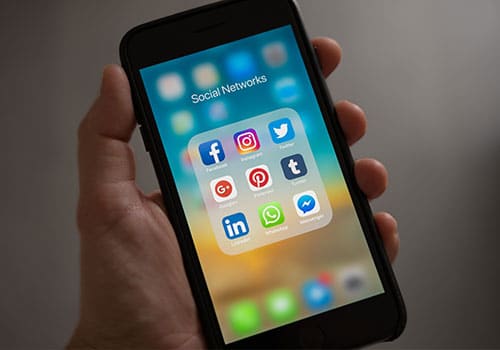Social media is a part of our everyday lives, and it has crossed over from our personal lives into our business lives. However, there needs to be a delineation between the two to avoid social media security risks. Employees must be made aware of these differentiations and not blur the lines between the personal and business use of social media – or there could be far reaching ramifications.
In the business environment, employees are expected to behave in accordance with policies and be a professional and respectable representative of the organization when online. In one’s personal environment, this is not always the case. Organizations should always have a policy that defines acceptable behavior on the internet.
Our professional and private activities often overlap when engaging in a social media environment. When this overlap occurs, employees should be aware that their personal activities have the potential to impact their professional careers. Fortunately, there are effective ways to help employees maintain proper etiquette for social media security, protecting both the individual and the organization.
Some of the top reasons employees should know about social media security risks include the protection of confidential and sensitive information, the reputation of the company and its employees, the security of passwords used for secure and unsecured websites, and the use of appropriate language and topics of conversation in various environments.
Strategies for Avoiding Social Media Risks
Instructing employees on acceptable social media behavior does not need to be a complex or time-consuming process. In most cases, simply making people aware of the risks associated with social media with regard to the organization and professional use is enough to prevent future issues.
Establish a written policy
The first step is for the organization to establish what it considers to be acceptable social media use and define it in an acceptable use policy (AUP). The AUP is where the organization can outline its policies, clearly stating what can and cannot be shared about the company, as well as what constitutes confidential information and professional behavior.
Keep information private
In addition to an AUP, employees should also be trained about the myriad of social media security risks and how the personal and business overlap. For example, many individuals may not think about the security implications of posting about when and where they are going on vacation. This type of information for the world to see not only opens up a possibility of an attack on their credentials, but it also makes their home a possible target for a robbery.
Protect personal and organizational reputation
Public sharing is a double-edged sword. Professional online conduct can have a positive impact on the reputation of an individual or an organization that he or she represents just like unprofessional conduct can have a negative impact. Employees should be made aware of how social media use affects their image and that of the company.
Use appropriate language and conduct
People tend to maintain a professional demeanor during business hours that transitions to a more relaxed posture in informal settings. With social media, these lines are blurred. The reader of a social media post will see no difference between the two. Individuals need to be aware that a post made informally one day, can be read any time in the future by someone expecting a professional interface. This is especially important if you use your personal accounts to connect with professional contacts.
Safeguard logins and passwords
We all know by now that you should have a unique password for each and every account you have. Did you know that 81% of hacking-related data breaches stem from poor password security? On the dark web, there is information regarding user accounts that you have and the insecure passwords associated with them. If you reuse your password, it is very easy for a hacker to do research on you and try those insecure passwords. It is amazing that people are not better with their passwords after all the media coverage in the past few years. Most individuals, unfortunately, have the mindset that it will never happen to them.
Learn More About Social Media Security
Consumers, suppliers, competitors and employers use social media to gather information about each other. It is common practice for organizations that are hiring to do research on what individuals have posted and how they have conducted themselves on social media. Remember once it is out there, it is always out there for the world to see.
If your organization would like to address social media security risks as part of your security awareness training program, contact GLS to learn about the courses we offer.



